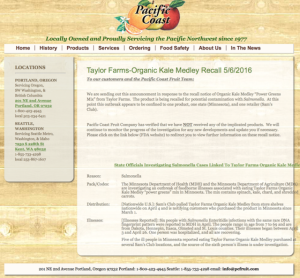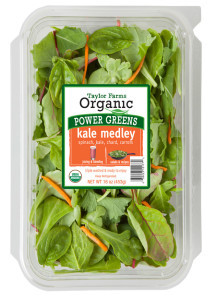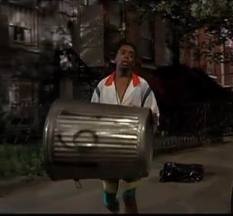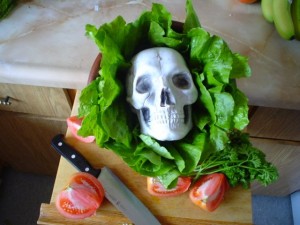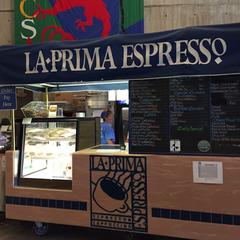Beginning August 2, 1998, over 80 Americans fell ill, 15 were killed, and at least six women miscarried due to listerosis. On Dec. 19, 1998, the outbreak strain was found in an open package of hot dogs partially consumed by a victim. The manufacturer of the hot dogs, Sara Lee subsidiary Bil Mar Foods, Inc., quickly issued a recall of what would become 35 million pounds of hot dogs and other packaged meats produced at the company’s only plant in Michigan. By Christmas, testing of unopened packages of hot dogs from Bil Mar detected the same genetically unique L. monocytegenes bacteria, and production at the plant was halted.
 A decade later, the deaths of two Toronto nursing home residents in the summer of 2008 were attributed to listeriosis infections. These illnesses eventually prompted an August 17, 2008 advisory to consumers by the Canadian Food Inspection Agency (CFIA) and Maple Leaf Foods, Inc. to avoid serving or consuming certain brands of deli meat as the products could be contaminated with L. monocytogenes. When genetic testing determined a match between contaminated meat products and listeriosis patients, all products manufactured at a Toronto Maple Leaf Foods plant were recalled and the facility closed. An investigation by the company determined that organic material trapped deep inside the plant’s meat slicing equipment harbored L. monocytogenes, despite routine sanitization that met specifications of the equipment manufacturer. In total, 57 cases of listeriosis as well as 22 deaths were definitively connected to the consumption of the plant’s contaminated deli meats.
A decade later, the deaths of two Toronto nursing home residents in the summer of 2008 were attributed to listeriosis infections. These illnesses eventually prompted an August 17, 2008 advisory to consumers by the Canadian Food Inspection Agency (CFIA) and Maple Leaf Foods, Inc. to avoid serving or consuming certain brands of deli meat as the products could be contaminated with L. monocytogenes. When genetic testing determined a match between contaminated meat products and listeriosis patients, all products manufactured at a Toronto Maple Leaf Foods plant were recalled and the facility closed. An investigation by the company determined that organic material trapped deep inside the plant’s meat slicing equipment harbored L. monocytogenes, despite routine sanitization that met specifications of the equipment manufacturer. In total, 57 cases of listeriosis as well as 22 deaths were definitively connected to the consumption of the plant’s contaminated deli meats.
As far back as 2013, Blue Bell ice cream was finding Listeria in places like floors, catwalks and cleaning tubs. Blue Bell had positive listeria findings from at least 11 swabs of plant surfaces between March 2013 and November 2014. Each time, it vigorously cleaned the area, and moved on without testing the equipment that touches the ice cream. At the same time, Blue Bell had problems with the layout of its plants, with condensation dripping all over the place. After federal officials linked an illness outbreak to Blue Bell in 2015, they tested the company’s food processing equipment and found LM. Three people died and 10 were sickened.
In all three Listeria outbreaks, the companies had data that showed an increase in Listeria-positive samples.
But rather than pay attention, they ignored the safety.
Those who study engineering failures –the BP oil well in the Gulf, the space shuttle Challenger, Bhopal – say the same thing: human behavior can mess things up.
 In most cases, an attitude prevails that is, “things didn’t go bad yesterday, so the chances are, things won’t go bad today.”
In most cases, an attitude prevails that is, “things didn’t go bad yesterday, so the chances are, things won’t go bad today.”
And those in charge begin to ignore the safety systems.
Or hope the problem will just go away.
Kellogg’s was taking Salmonella-contaminated peanut paste based on paperwork in 2009? Pay attention, Nestle did.
In 2009, the operator of a yakiniku barbecue restaurant chain linked to four deaths and 70 illnesses from E. coli O111 in raw beef in Japan admitted it had not tested raw meat served at its outlets for bacteria, as required by the health ministry.
“We’d never had a positive result [from a bacteria test], not once. So we assumed our meat would always be bacteria-free.”
Chipotle Mexican Grill was aware of a norovirus outbreak among people who had eaten in one of its restaurants in Simi Valley, Calif., but did not tell public health officials there until after it had closed and cleaned the restaurant. More than 200 people were sickened.
So it’s no surprise that officials at Dole’s Springfield, Ohio plant, which bags lettuce and other supposedly healthy meals, knew about Listeria in its facility for 18 months before shutting down and issuing a recall.
Four people have died and 33 sickened in Canada and the U.S. from Listeria in the Dole products.
Kudos to Bill Marler and his Food Safety News, as well as Food Poisoning Bulletin, for filing the Freedom of Information request on U.S. Food and Drug Administration inspections at the Dole plant and putting together a preliminary picture of who knew what when.
Inspection reports (483) obtained by Food Safety News revealed the timeline of positive Listeria results and inaction. Dole Fresh Vegetables Inc. finally suspended production at its salad plant in Springfield, OH, on Jan. 21 this year after a random test by state officials showed a bagged salad contained Listeria monocytogenes.
Dole restarted production at the plant in Springfield, OH, on April 21. Company officials won’t say what was done to clean the plant or how they plan to prevent future contamination there.
 Inspectors from FDA checked the production plant three times in January and twice in February after genetic fingerprinting showed the undeniable link between the sick people and salads from the facility. They collected swab samples, unfinished product samples, testing records and other documents and information.
Inspectors from FDA checked the production plant three times in January and twice in February after genetic fingerprinting showed the undeniable link between the sick people and salads from the facility. They collected swab samples, unfinished product samples, testing records and other documents and information.
According to the FDA’s inspection reports, in July 2014 Dole did swab tests of surfaces in the Springfield plant. The tests returned positive results for Listeria, but the facility kept producing salads, shipping them to dozens of states and at least five Canadian provinces.
At least five more times in 2014 and three times in late 2015 Dole’s internal tests showed Listeria contamination, but Dole kept the salad lines kept rolling until January this year.
The FDA inspection report states that Dole’s vice president for quality assurance and food safety, as well as the company’s quality assurance manager, were aware internal tests on Jan. 5 and 7 this year showed Listeria on equipment and other surfaces in the plant. But Dole continued to produce and ship salads.
The plant kept operating until Jan. 21. The following day Dole posted a recall notice with the FDA and the Canadian Food Inspection Agency (CFIA) for salads produced at the Springfield facility. Dole branded salads and house brands for Walmart, Kroger, Loblaws and Aldi were included in the recall.
Marler, a prominent food safety lawyer who represents one of the victims in a lawsuit against Dole told Stephanie Strom of the N.Y. Times, “If the government inspectors hadn’t showed up, who knows when or if they were going to tell anyone.”
“They’d been having positive tests for listeria for some time,” said William Goldfield, a spokesman for Dole. “We understand these recent news reports may raise questions among our consumers and customers. They should be assured, however, that we have worked in conjunction with the F.D.A. to address those observations and ensure that Dole products are safe.”
Lauren Sucher, a spokeswoman at the F.D.A., said that companies must notify the agency when they find a food has a “reasonable probability” of causing serious adverse health consequences.
But, Ms. Sucher said, not all strains of listeria cause disease. “When listeria is found in the manufacturing environment, rather than on the food itself, it is not uncommon for a company to immediately take corrective action rather than test further to see if the strain of listeria poses a threat,” she wrote in an email.
Food companies that find listeria during periodic testing are not required to run further tests to determine whether the pathogen is of a toxic variety.
In Dole’s case, it was swabbing various locations in its plant in Springfield, Ohio, not necessarily testing the finished products, according to the F.D.A. inspection. Rather, Canadian public health officials investigating an outbreak of listeriosis dating to summer 2015, tested bagged Dole salads and found four varieties that were contaminated.
 the PR; I can’t make this shit up).
the PR; I can’t make this shit up).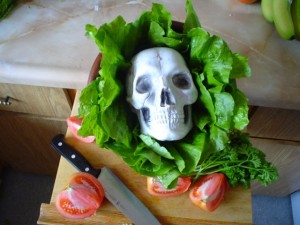 And collaborate with the U.K. Food Standards Agency, whose idea of science-based verification is to cook meat until it is piping hot, and declared in 2011 that E. coli O157:H7 found on or in leeks or potatoes, was the consumers’ responsibility.
And collaborate with the U.K. Food Standards Agency, whose idea of science-based verification is to cook meat until it is piping hot, and declared in 2011 that E. coli O157:H7 found on or in leeks or potatoes, was the consumers’ responsibility.



